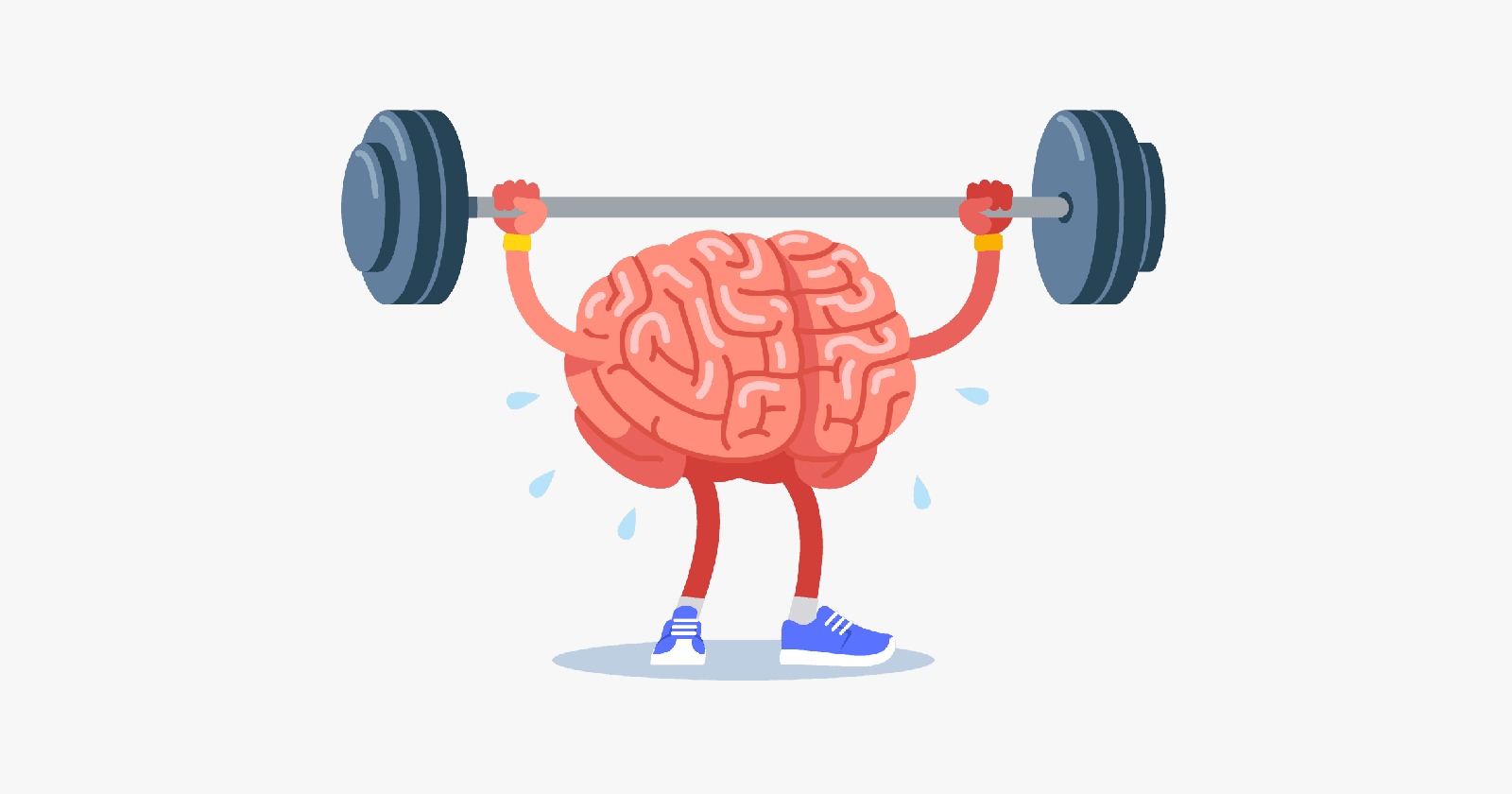
Impact of Digital Detox on Mental Well-being
Digital detoxes, periods of intentional disconnection from electronic devices, positively impact mental well-being by reducing stress, anxiety, and sleep disruption caused by overuse of technology. They enhance focus, emotional health, and social connections. Though challenging initially, regular detoxes foster healthier tech habits and long-term mental resilience, offering a vital balance in today’s hyper-connected world.
💪 Fitness Guru
38 min read · 11, Aug 2025

Introduction
In our hyperconnected world, digital devices are everywhere — from smartphones and laptops to social media and streaming platforms. While technology brings incredible convenience, constant digital engagement can also overwhelm our minds and drain our mental health. Increasing screen time, social media comparison, and information overload often lead to stress, anxiety, and sleep problems.
This is where a digital detox becomes a powerful tool. By intentionally stepping away from screens for a set time, you give your mind a chance to rest, reset, and heal. Digital detoxes help restore balance, improve focus, and boost overall mental well-being.
In this article, we’ll dive into what digital detox means, its impact on mental health, scientific insights, and practical tips to incorporate detoxes into your busy life. Digital detox has become an increasingly popular concept as the world grows more connected through technology. In a society where smartphones, social media, and constant notifications dominate daily life, taking deliberate breaks from these digital devices has shown significant impacts on mental well-being. The relationship between digital detox and mental health is complex, yet highly relevant in today’s fast-paced and hyper-connected environment.
Constant exposure to digital screens and online platforms often leads to overstimulation and mental fatigue. People frequently report feeling overwhelmed by the endless flow of information, messages, and updates. This information overload can result in anxiety, stress, and difficulty concentrating. Digital detox, by temporarily disconnecting from these digital sources, allows the brain to rest and reset. This break helps reduce cognitive overload and restores mental clarity, enabling individuals to think more clearly and respond to daily challenges with greater calmness.
One of the most profound benefits of digital detox is the reduction of stress. The constant buzz of notifications and the pressure to stay updated with social media or work emails creates a state of heightened alertness in many people, often described as being “always on.” This chronic state of alertness can activate the body’s stress response, releasing hormones like cortisol, which, if prolonged, negatively impact both mental and physical health. By taking a break from screens, the body’s stress levels tend to decrease, promoting relaxation and a sense of peace. This mental downtime can be crucial for emotional regulation and overall psychological resilience.
Digital detox also plays a key role in improving sleep quality, which is vital for mental well-being. Exposure to blue light emitted by screens interferes with the production of melatonin, the hormone responsible for regulating sleep-wake cycles. Poor sleep can exacerbate feelings of anxiety and depression, impair memory, and reduce the ability to cope with stress. By stepping away from devices, especially before bedtime, people often find they fall asleep faster and experience more restful sleep. Improved sleep, in turn, enhances mood, cognitive function, and emotional stability.
Another important aspect of mental well-being linked to digital detox is the enhancement of real-life social connections. Digital technology, while enabling virtual communication, sometimes contributes to feelings of isolation and loneliness. Social media platforms can create unrealistic expectations through curated images of others’ lives, leading to social comparison, envy, and lower self-esteem. When individuals disengage from these platforms during a digital detox, they often reconnect more meaningfully with their immediate environment and relationships. Face-to-face interactions tend to increase, promoting deeper emotional bonds and a stronger sense of belonging, which are essential for mental health.
The practice of digital detox encourages mindfulness, a state of being fully present and engaged in the current moment. Constant multitasking between apps, messages, and notifications fragments attention and diminishes the ability to focus. By unplugging from digital distractions, people can cultivate mindfulness, becoming more aware of their thoughts, feelings, and surroundings. This heightened self-awareness helps reduce negative thought patterns and fosters greater emotional balance. Mindfulness gained through digital detox is often associated with lower anxiety levels and improved coping mechanisms in the face of stress.
Moreover, digital detox has been found to boost creativity and productivity. The relentless connectivity of the digital world often interrupts flow states, those periods when one is deeply focused and highly creative. Continuous checking of phones and apps breaks concentration, causing tasks to take longer and reducing quality. Taking time away from screens allows the mind to wander, which is essential for creativity and problem-solving. Many people report feeling more inspired and efficient after a digital detox, as they can channel their mental energy into meaningful activities without the constant pull of technology.
However, it is important to recognize that digital detox is not about completely abandoning technology but about finding a healthy balance. Technology itself is not inherently harmful; it provides numerous benefits, such as access to information, communication, and entertainment. The challenge lies in managing technology use mindfully to prevent it from negatively affecting mental health. Digital detox offers a structured way to reclaim control over technology habits and set boundaries that protect mental well-being.
On a psychological level, digital detox can reduce symptoms of depression and anxiety. Studies have indicated that excessive use of social media and digital devices is linked to increased rates of these mental health issues, especially among young people. The constant exposure to negative news, cyberbullying, and online peer pressure can intensify feelings of helplessness and low self-worth. By stepping away, individuals create a buffer zone that allows emotional wounds to heal and reduces exposure to harmful stimuli.
Moreover, digital detox can restore a sense of autonomy and empowerment. In the digital age, many feel controlled by the endless demands of apps and online platforms, which are often designed to maximize user engagement through notifications and algorithms. This creates compulsive usage patterns that are hard to break. Taking intentional breaks from technology helps individuals regain control over their time and attention, reducing feelings of dependency and helplessness. This regained autonomy contributes significantly to better mental health.
For children and adolescents, digital detox is especially critical. Their developing brains are more vulnerable to the overstimulation and social pressures of the digital world. Excessive screen time has been associated with increased risk of attention problems, anxiety, and impaired social skills. Introducing regular periods of digital detox can encourage healthier habits, promote physical activity, and foster face-to-face interactions, which are crucial for healthy psychological development.
While the benefits of digital detox are clear, it is also necessary to approach it realistically. A sudden and prolonged disconnection may cause anxiety or feelings of missing out for some individuals. Gradual and planned detox periods tailored to personal needs tend to be more sustainable. Incorporating small digital breaks throughout the day or setting device-free times can help ease the transition. The goal is to develop a healthier relationship with technology that supports rather than hinders mental well-being.
What is a Digital Detox?
A digital detox is a deliberate break from digital devices and online platforms. It can range from a few hours each day to days or even weeks without screens.
The goal is not to quit technology entirely but to reduce dependence, improve real-life connections, and bring mindful awareness to how and why you use digital tools.
Detox can include:
- Turning off notifications
- Limiting social media use
- No screens during meals or before bed
- Designating tech-free zones or times
Why Digital Detox Matters for Mental Well-being
Constant connectivity impacts our brain and emotions in several ways:
- Information Overload
- Endless news, messages, and updates overload your brain’s processing ability, increasing stress and decision fatigue.
- Social Media Comparison
- Seeing curated highlights can trigger feelings of inadequacy, envy, and low self-esteem.
- Sleep Disruption
- Blue light from screens suppresses melatonin production, disturbing your natural sleep cycle.
- Reduced Attention Span
- Multitasking between apps and notifications fragments focus, making it hard to concentrate deeply.
- Increased Anxiety and Depression
- Excessive screen time is linked to higher rates of anxiety, depression, and loneliness.
Scientific Evidence Supporting Digital Detox
Several studies highlight how taking breaks from digital devices positively affects mental health:
- Research shows a 30-day social media detox reduced anxiety and improved mood in young adults.
- Digital breaks improve sleep quality by allowing melatonin levels to normalize.
- Mindfulness and reduced screen exposure improve attention span and memory retention.
- Detox periods lower cortisol (stress hormone) levels and boost overall psychological well-being.
Benefits of Digital Detox on Mental Well-being
- Reduced Stress and Anxiety
- Detoxing limits exposure to negative news and constant notifications, calming your nervous system.
- Improved Sleep Quality
- Less screen time before bed means better melatonin production and more restful sleep.
- Enhanced Focus and Productivity
- Without digital distractions, your brain can engage deeply with tasks and creativity.
- Better Mood and Emotional Stability
- Detox helps you connect with real-life interactions, reducing feelings of loneliness and depression.
- Stronger Relationships
- Being fully present without screens fosters meaningful conversations and bonds.
- Increased Self-awareness
- Stepping back from digital noise helps you notice your true feelings and priorities.
How to Practice Digital Detox in Daily Life
1. Start Small
Begin with short breaks like “no screen” meals or 30-minute device-free periods.
2. Create Tech-Free Zones
Keep bedrooms, dining areas, or meditation corners free from phones and laptops.
3. Schedule Detox Times
Set daily “digital sunset” where you switch off devices 1-2 hours before bedtime.
4. Turn Off Non-essential Notifications
Silence alerts that constantly pull your attention.
5. Replace Screen Time with Mindful Activities
Read a book, meditate, journal, or go for a walk instead.
6. Use Apps to Monitor & Limit Usage
Apps like “Screen Time” or “Digital Wellbeing” help track habits and set limits.
Daily Digital Detox Routine for Mental Wellness
Morning
- Avoid checking phone for first 30 minutes after waking
- Practice 5 minutes of meditation or deep breathing
- Enjoy a tech-free breakfast
Afternoon
- Take 10-minute walk outside without any devices
- Use focus timers for work/study, avoiding multitasking on screens
Evening
- Switch off screens at least 1 hour before bed
- Engage in relaxing activities like reading or gentle yoga
- Reflect in a journal about your digital use and feelings
Weekly Digital Detox Practices
- Designate a “Screen-Free Sunday” or a few hours with no digital interaction
- Plan social activities without phones—game nights, walks, or cooking together
- Clean up your digital space—unsubscribe from emails, delete unused apps
- Practice a full day digital detox once a month if possible
Common Challenges & How to Overcome Them
Challenge: Fear of missing out (FOMO)
Solution: Remind yourself that your mental peace is more valuable than constant updates. Plan catch-up times.
Challenge: Work or urgent messages
Solution: Inform colleagues/friends about your detox time; use emergency contact options.
Challenge: Boredom without screens
Solution: Have a list of offline activities ready—reading, puzzles, crafts, nature walks.
Challenge: Habitual checking
Solution: Place your phone in another room or use “Do Not Disturb” mode.
Digital Detox Myths: Busted!
“Digital detox means quitting all technology forever.”
→ False! It’s about balance, not avoidance.
“I’ll lose touch with friends and news.”
→ Detox encourages mindful, quality connection, not isolation.
“Only teenagers need a detox.”
→ Everyone benefits—students, professionals, parents, elders.
“I don’t use social media much, so detox isn’t for me.”
→ Screen time includes emails, games, streaming, and even work tools.
Tips to Maintain Long-Term Digital Balance
- Regularly check your screen time stats
- Prioritize face-to-face over virtual meetings when possible
- Set clear boundaries for work and personal digital use
- Practice mindfulness to notice when digital use becomes compulsive
- Celebrate small victories like uninterrupted meals or screen-free evenings
Conclusion
Digital detox is more than a trendy challenge—it’s a necessary step to reclaim your mental health in the digital age. By consciously unplugging, you reduce stress, improve sleep, sharpen focus, and deepen your relationships. This intentional pause creates space for clarity, creativity, and emotional balance.
You don’t have to go cold turkey. Even small, consistent changes can have a profound impact on your well-being. So start today by setting a simple goal — maybe a tech-free dinner or a 30-minute walk without your phone.
Your mind will thank you with calm, clarity, and a renewed sense of control.
Step back from the screen. Reconnect with yourself. Feel the difference.
Q&A Section
Q1:- What is a digital detox and why is it important for mental well-being?
Ans :- A digital detox is a deliberate period of time when a person refrains from using electronic devices like smartphones and computers to reduce stress and mental overload, helping restore focus and emotional balance.
Q2:- How does excessive screen time affect mental health?
Ans :- Prolonged screen use can lead to anxiety, depression, sleep disturbances, and reduced attention span due to constant notifications, social media pressure, and blue light exposure.
Q3:- What mental health benefits can one expect from a digital detox?
Ans :- Improved mood, reduced anxiety, better sleep quality, enhanced mindfulness, and increased ability to concentrate and connect with the real world are key benefits.
Q4:- How does a digital detox help improve sleep patterns?
Ans :- Reducing screen time, especially before bed, decreases blue light exposure, which helps regulate melatonin production and promotes deeper, more restful sleep.
Q5:- Can digital detox improve social relationships? How?
Ans :- Yes, by minimizing distractions, people become more present and engaged in face‑to‑face interactions, strengthening bonds and reducing feelings of loneliness.
Q6:- How often should one do a digital detox for optimal mental health?
Ans :- Frequency varies, but even short breaks daily or a longer detox weekly or monthly can significantly benefit mental clarity and emotional resilience.
Q7:- What are common challenges people face during a digital detox?
Ans :- Withdrawal symptoms like boredom, FOMO (fear of missing out), anxiety, and difficulty disconnecting from work or social media are common initial hurdles.
Q8:- How can one prepare effectively for a digital detox?
Ans :- Planning ahead by informing others, setting goals, removing distractions, and substituting digital time with offline activities helps ensure success.
Q9:- Are there specific populations that benefit more from digital detoxes?
Ans :- Teens, young adults, and people with anxiety or burnout symptoms often gain the most, though everyone can improve mental well-being with reduced screen time.
Q10:- How does digital detox contribute to long-term mental health maintenance?
Ans :- Regular detoxes build healthier digital habits, lower chronic stress levels, improve emotional regulation, and promote a balanced lifestyle with mindful technology use.
Similar Articles
Find more relatable content in similar Articles

Epigenetics and Exercise – How Your Workout Affects Your Chi..
“Exploring how regular physica.. Read More

How to Build a Skincare Routine Based on Your Skin Type (Oil..
A personalized skincare routi.. Read More

The Perfect Daily Skincare Routine: Morning to Night Essenti..
A perfect daily skincare rout.. Read More

Fitness for the Brain – How Workouts Rewire Your Mind...
“Discover how physical exercis.. Read More
© 2024 Copyrights by rFitness. All Rights Reserved.